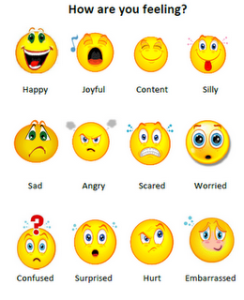Defining Empathy
Defining Empathy
Many people confuse empathy with sympathy. In defining empathy, you will be able to see a distinct difference. I will also briefly touch on sympathy, which can also be sometimes thought of as the same thing.
Empathy is being able to share someone else’s feelings, understanding their experience or putting yourself in their shoes. Merriam-Webster goes into more depth in their definition, saying:
the action of understanding, being aware of, being sensitive to, and vicariously experiencing the feelings, thoughts, and experience of another of either the past or present without having the feelings, thoughts, and experience fully communicated in an objectively explicit manner; also : the capacity for this
Zoey Miller also has some practical thoughts on empathy as well. Take a peek at her blog on The Babble Out here!
Here’s a short video by Brene Brown which gives a great example on how to be empathetic:
Dr. Brown does a great job in the above video to give you a brief look at the difference between sympathy empathy. I want to take a look and expound on the things she mentioned.
Empathetic vs Sympathetic
As Dr. Brown stated, empathy fuels connection and sympathy drives disconnection. Think about the last time you were going through a bad experience and what kind of responses you received when you shared that with someone. How did it make you feel?
Perspective
 I’m sure you have heard the phrase ‘put things into perspective’. You probably have even been told it a time or two. How do you put things in perspective? Simplified, it means to take a look at. Someone tells you their dog died and how bad it has made them feel.
I’m sure you have heard the phrase ‘put things into perspective’. You probably have even been told it a time or two. How do you put things in perspective? Simplified, it means to take a look at. Someone tells you their dog died and how bad it has made them feel.
You may not have experienced it yourself but you can acknowledge the sadness. You can recognize that what they’re feeling is very real to them and because of that, their feelings are valid.
Judgement
 Oh how we love to place judgement on others. It is one of those bad habits I am sure we all could improve upon. It’s like the Biblical saying, “judge not lest ye be judged”. We don’t like being judged ourselves, so why do we place judgement on others?
Oh how we love to place judgement on others. It is one of those bad habits I am sure we all could improve upon. It’s like the Biblical saying, “judge not lest ye be judged”. We don’t like being judged ourselves, so why do we place judgement on others?
Again, it is helpful to put yourself in the other person’s shoes. Imagine how you would feel if you were going through the same thing. Maybe you have been through it. Express that and let them know they are not alone.
Recognition
 Recognition and acknowledgement go hand in hand. You are letting the person know you see what they are feeling and validate that feeling. You let them know it is okay for them to feel that way.
Recognition and acknowledgement go hand in hand. You are letting the person know you see what they are feeling and validate that feeling. You let them know it is okay for them to feel that way.
Feelings are often temporary or at the very least they can decrease in intensity. In the beginning, the emotional pain can be quite severe. We know it will get better but that is the last thing you want to tell someone. Instead relate to them that you get it and it’s okay.
Feeling
 When we go through life’s troubles, we reach out to those in our circle. It doesn’t mean we want that person to ‘fix’ anything. We just want someone to listen and feel with us. Part of sympathy is just feeling with people.
When we go through life’s troubles, we reach out to those in our circle. It doesn’t mean we want that person to ‘fix’ anything. We just want someone to listen and feel with us. Part of sympathy is just feeling with people.
If you are moved then cry with them as well. I had an aunt who would just hold me and let me cry. It was exactly what I needed, no words necessary at all.
Why Empathy Important
First, empathy is something you choose to have. It is a vulnerable choice. You are looking inside yourself and pulling up feelings that weren’t pleasant the first time you experienced them. But in order to connect with another person, you have to connect with that part of you that truly knows that feeling.
 It is important to have empathy if you want to help others. It is that connection you are able to make which is all the difference. I think the world could use more empathetic people but we all have our roles to play.
It is important to have empathy if you want to help others. It is that connection you are able to make which is all the difference. I think the world could use more empathetic people but we all have our roles to play.
Like Dr. Brown said in the video, never use the words ‘at least’. If you are going through a hard time, you are not in the right emotional state to see any ‘silver lining’. “My dog was hit by a car last night and died during the night.” “Well, at least you have two more dogs.”
Don’t try to put a bandaid on the problem or try to make things better. Words won’t make anything better. You making that connection is what will help more than anything.
Have you had a good experience with empathy? What about a bad one? Either given or received? I would love to hear your stories in the comments below…

Hi Angela, I never really thought about defining the meaning of empathy but you put a real deep insight on to it. You have a lot of great info here and I have to say I think it is all true, especially about expressing your empathy and bringing up your feelings. Great article, looking forward to your next post.
Hi Jason,
I absolutely think it is important for everyone to learn how to express empathy. I also think if more people were empathetic, it would do a lot to help others who suffer from depression. Most people don’t want you to solve their problems. They just want someone to listen and understand – empathize.
Angela
That’s quite a beautiful piece of writing/article you have there – made a refreshing change to read. Empathy can be looked at in so many different ways it seems peculiar to try and define it ( but you’ve done a good job here! ). I also enjoyed the video addition you added to the article. Hopefully more people will be comfortable with expressing empathy after reading this.
Chris
Hi Chris,
Yes, I think many might find it peculiar but I also feel there are many who do not truly understand what it means to be empathetic. A lot of people equate it with sympathy or pity and it just is not the same. In fact it is far from it.
Thanks for stopping by,
Angela
Hi Angela,
Great article you have here. From what I’ve understood, empathy entails connecting with the other person and trying to feel what they feel. Should this be accompanied by words or would a nice, long, loving hug in silence suffice?
Am i supposed to try and be comforting in any way?
Hi Kenn,
Definitely try and be of comfort and sometimes that doesn’t call for words. Sometimes a nice long hug is just what is needed.
Hi Angela,
Great article you have here. Was just wondering, should we say much when empathizing; in a bid to try and comfort someone or would just listening and giving a nice long hug suffice?
Especially if you’ve never experienced what your friend/colleague has gone/is going through.
When you have not experienced what the person is going through, just try and let them know you are there and don’t use those words – “well, atleast you still have …” and it is not necessary to try and ‘fix’ anything.
Angela
hi Haddie!
wonderful post on empathy! As a psychologist who works with a very difficult population, I absolutely appreciate this article. I have known all my life that I was very empathetic. It’s actually more than that. I can feel what others feel as though it is happening to me. it was certainly overwhelming at the beginning but I have learned to use it for good. But I think you phrased it perfectly: it makes us more vulnerable to have that empathy for others. But without it, then where are we going as human beings?
Hi Emily,
You are so right. I think that is some of the problems with society today. Many people lack empathy and have no regard for other people. Somewhere through the years people began to care less about others and more about themselves. Not that you shouldn’t care about yourself but don’t forget your ‘neighbor’ either.
Angela